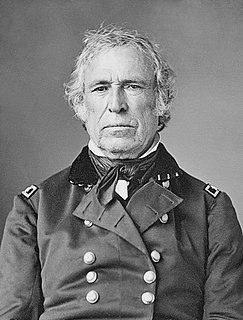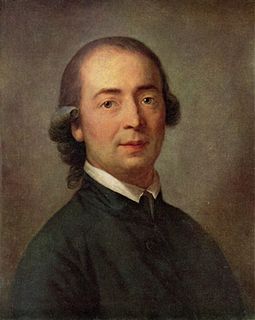A Quote by Herodotus
If anyone, no matter who, were given the opportunity of choosing from amongst all the nations in the world the set of beliefs which he thought best, he would inevitably—after careful considerations of their relative merits—choose that of his own country. Everyone without exception believes his own native customs, and the religion he was brought up in, to be the best.
Related Quotes
What makes a free thinker is not his beliefs, but the way in which he holds them. If he holds them because his elders told him they were true when he was young, or if he holds them because if he did not he would be unhappy, his thought is not free; but if he holds them because, after careful thought, he finds a balance in their favor, then his thought is free, however odd his conclusions may seem.
The Bible is the best of books, and I wish it were in the hands of every one. It is indispensable to the safety and permanence of our institutions. A free government can not exist without religion and morals, and there cannot be morals without religion. Especially should the Bible be placed in the hands of the young. It is the best school book in the world. I would that all our people were brought up under the influence of that holy book.
The good citizen will demand liberty for himself, and as a matter of pride he will see to it that others receive the liberty which he thus claims as his own. Probably the best test of true love of liberty in any country is the way in which minorities are treated in that country. Not only should there be complete liberty in matters of religion and opinion, but complete liberty for each man to lead his life as he desires, provided only that in so doing he does not wrong his neighbor.
The Enemy wants to bring the man to a state of mind in which he could design the best cathedral in the world, and know it to be the best, and rejoice in the fact, without being any more (or less) or otherwise glad at having done it than he would be if it had been done by another. The Enemy wants him, in the end, to be so free from any bias in his own favour that he can rejoice in his own talents as frankly and gratefully as in his neighbour's talents--or in a sunrise, an elephant, or a waterfall.
Everyone loves his own country, customs, language, wife, children, not because they are the best in the world, but because they are his established property, and he loves in them himself, and the labor he has bestowed on them. The working of revolutions, therefore, misleads me no more; it is as necessary to our race as its waves to the stream, that it may not be a stagnant marsh. Ever renewed in its forms, the genius of humanity blossoms.
If there were only some way of contriving that a state or an army should be made up of lovers and their beloved, they would be the very best governors of their own city, abstaining from all dishonour, and emulating one another in honour; and when fighting at each other's side, although a mere handful, they would overcome the world. For what lover would not choose rather to be seen by all mankind than by his beloved, either when abandoning his post or throwing away his arms? He would be ready to die a thousand deaths rather than endure this.
This soldier, I realized, must have had friends at home and in his regiment; yet he lay there deserted by all except his dog. I looked on, unmoved, at battles which decided the future of nations. Tearless, I had given orders which brought death to thousands. Yet here I was stirred, profoundly stirred, stirred to tears. And by what? By the grief of one dog. Napoleon Bonaparte, on finding a dog beside the body of his dead master, licking his face and howling, on a moonlit field after a battle. Napoleon was haunted by this scene until his own death.
Religion shows a pattern of heredity which I think is similar to genetic heredity. ... There are hundreds of different religious sects, and every religious person is loyal to just one of these. ... The overwhelming majority just happen to choose the one their parents belonged to. Not the sect that has the best evidence in its favour, the best miracles, the best moral code, the best cathedral, the best stained-glass, the best music when it comes to choosing from the smorgasbord of available religions, their potential virtues seem to count for nothing compared to the matter of heredity.
Ben remembered reading about curators in "Wonderstruck", and thought about what id meant to curate your own life, as his dad had done here. What would it be like to pick and choose the objects and stories that would go in your own cabinet? How would Ben curate his own life? And then, thinking about his museum box, and his house, and his books, and the secret room, he realized he'd already begun doing it. Maybe, thought Ben, we are all cabinets of wonders.
God was happy without humans before they were made; he would have continued happy had he simply destroyed them after they had sinned; but as it is he has set his love upon particular sinners, and this means that, by his own free voluntary choice, he will not know perfect and unmixed happiness again till he has brought every one of them to heaven. He has in effect resolved that henceforth for all eternity his happiness shall be conditional upon ours.





































